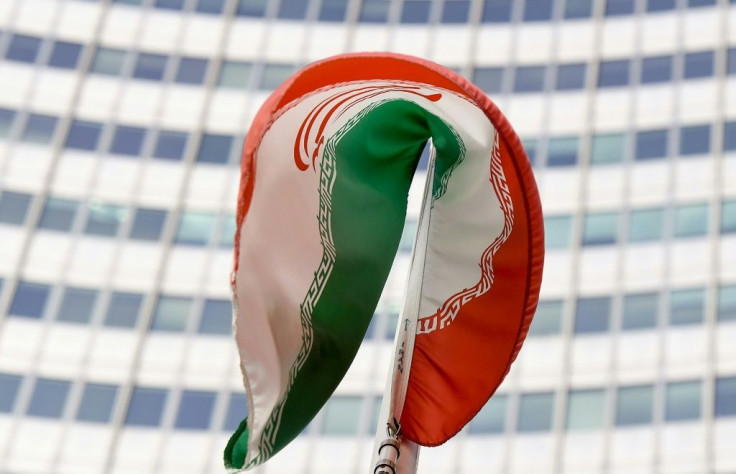Europeans To Push For Iran Censure At UN Nuclear Watchdog Meeting
The three European members of the 2015 Iran nuclear deal will put forward a resolution condemning Iran's suspension of some inspections by the UN nuclear watchdog, diplomatic sources said Monday.
France, Germany and the UK will propose it during this week's meeting of the UN nuclear watchdog's board of governors, a delicate moment for diplomacy on the Iranian nuclear issue.
US President Joe Biden has said he is willing to bring the United States back to the landmark 2015 deal between Tehran and major powers on its nuclear programme.
It has been unravelling since Biden's predecessor Donald Trump pulled the US out of the agreement in 2018.
But the proposed resolution could derail the temporary agreement that International Atomic Energy Agency (IAEA) chief Rafael Grossi hammered out with Iran to mitigate what he calls the "huge loss" of some IAEA inspections.
A document circulated by the Iranian mission in Vienna and seen by AFP said the introduction of a critical resolution would effectively end the temporary agreement with the IAEA.
Under that three-month arrangement, which went into force on February 23, Iran has pledged to keep recordings "of some activities and monitoring equipment" and hand them over to the IAEA as and when US sanctions are lifted.
Sources say the European resolution is expected to come to a vote on Friday, and that it is backed by the United States.
A version of the text seen by AFP "expresses serious concern at Iran's decision to stop implementing" some inspections-related commitments and "urges Iran to immediately resume implementation".
The prospect of Iran suspending the temporary agreement with the IAEA in retaliation was described by one diplomatic source as "a risk to be taken" to protect "the credibility of the agency" and stand up to Iranian "blackmail".
They were confident the resolution would be adopted, the source added.
Moscow has made clear its opposition to such a resolution.
Russia's deputy foreign minister also condemned Washington for US strikes on Iran-backed militias in eastern Syria last week, saying the move threatened to scupper potential talks.
"There is no doubt that influential forces in Washington have taken steps in order to derail this meeting," Sergei Ryabkov was quoted by Russian state news agency TASS as saying.

IAEA Director General Rafael Grossi, speaking to reporters after the start of this week's meeting, said the agency's inspections "should not be put in the middle of a negotiating table as a bargaining chip".
Asked whether the agency could still reassure the international community that the Iranian nuclear programme was exclusively peaceful under the new arrangements, Grossi replied: "So far, so good."
The 2015 deal, known as the JCPOA, was undermined when former US President Donald Trump dramatically withdrew from it in 2018. He went on to impose swingeing economic sanctions on Iran.
The latest tensions come after weeks in which Iran has continued breaking the limits laid down in the 2015 deal, for example by enriching uranium to 20 percent and producing uranium metal.
Tehran insists it has the right to take these steps in retaliation for the US sanctions, and that the measures can be reversed as soon as they are lifted.
Referring to the temporary agreement with the IAEA, Iranian foreign ministry spokesman Saeed Khatibzadeh said Monday: "Iran has accorded the other side a respite in good faith.
"We hope the other side will appreciate this approach of diplomacy and co-operation," he added.
On Sunday Iran dismissed a European offer of an informal meeting involving the United States, saying the time was not "suitable" while sanctions were still in place.
France's foreign ministry said on Monday it "regretted" Iran's stance.
"We remain fully engaged to work with our E3 partners... towards any negotiated solution" re-establishing the JCPOA in full, a ministry spokeswoman said.
The German foreign ministry also said it was also working with France and the UK "towards constructive discussions taking place between current JCPOA participants and the US".
"The US would be foolish to waste the time bought" by the temporary agreement, Kelsey Davenport, director for Nonproliferation Policy at the Arms Control Association think-tank told AFP.
"It would be positive to have a concrete reciprocal action from the US acknowledging that Iran showed some restraint by negotiating this technical understanding," she added.
If the current situation persists, "it will erode confidence in the peaceful nature of Iran's nuclear programme," she said.





















